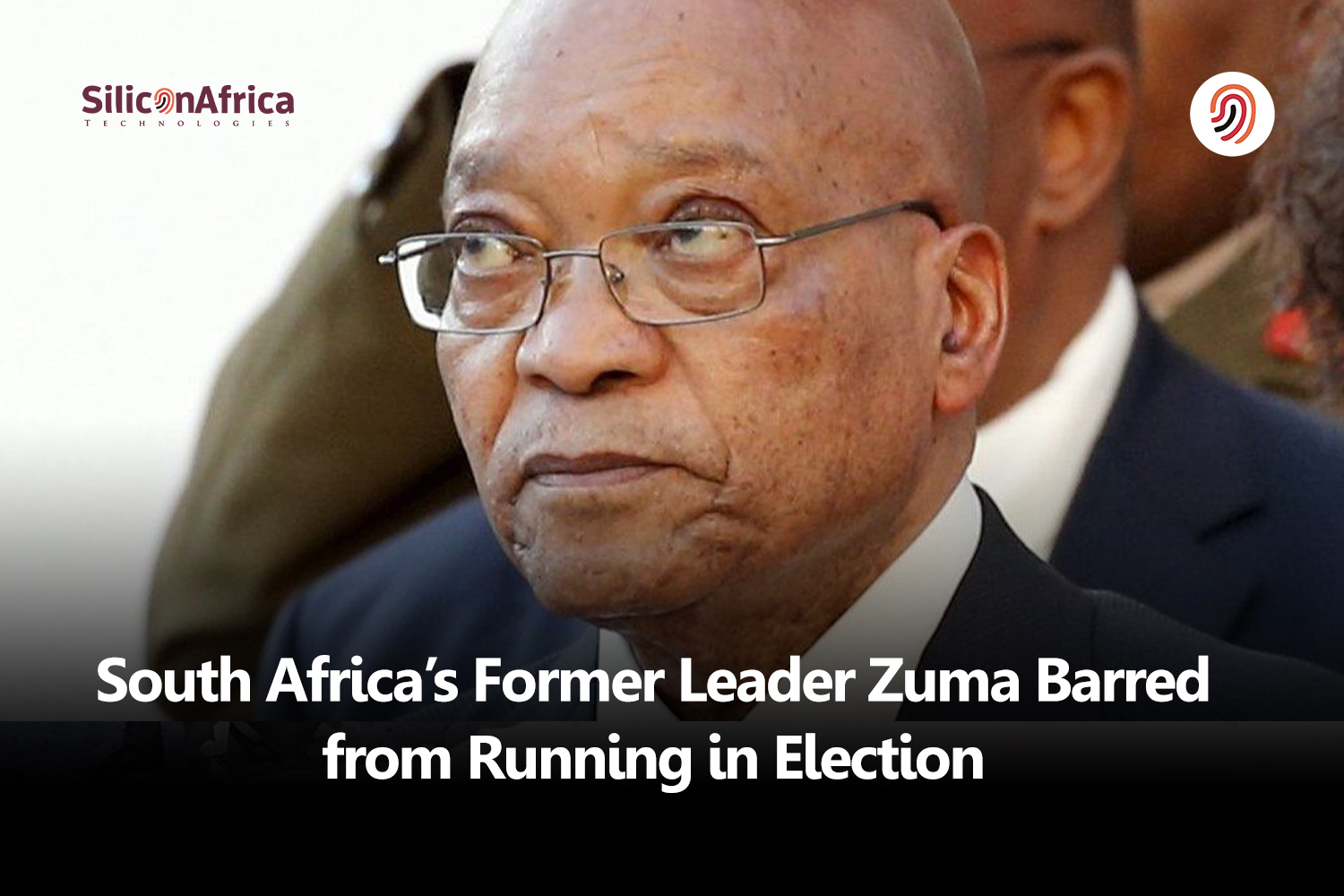Physical Address
60 Ekwema Cres, Layout 460281, Imo
Physical Address
60 Ekwema Cres, Layout 460281, Imo

In a landmark ruling, South Africa’s Constitutional Court has dealt a significant blow to former President Jacob Zuma’s political ambitions, declaring him ineligible to run for a seat in parliament.
The decision, handed down on Wednesday, effectively bars Zuma from participating in the country’s upcoming elections, a move that is expected to have far-reaching implications for the nation’s political landscape.
The Constitutional Court’s ruling is a major setback for Zuma, who had been seeking to make a political comeback despite facing numerous corruption charges.

The former president had been eyeing a seat in parliament, a move that many saw as an attempt to regain influence and shield himself from prosecution.
However, the court’s decision has put an end to those plans, at least for now.
According to the court, Zuma’s ineligibility stems from his failure to declare his candidacy within the stipulated time frame.
The Electoral Commission had set a deadline for candidates to register, which Zuma missed.
The court ruled that Zuma’s failure to comply with the deadline rendered him ineligible to run for office.
Zuma’s legal troubles have been well-documented.
The former president is facing multiple corruption charges, including allegations of fraud, racketeering, and money laundering.
His legal team has been fighting to have the charges dropped, but so far, the courts have refused to budge.
The latest ruling is a significant blow to Zuma’s efforts to avoid accountability for his actions while in office.
The ruling is expected to have significant implications for South African politics.
Zuma’s African National Congress (ANC) party has been divided over his candidacy, with some members supporting his bid and others opposing it.
The court’s decision is likely to deepen those divisions, potentially leading to a rift within the party.
The Zuma election ban marks a new era for South African politics, one in which accountability and the rule of law are being upheld.
The ruling sends a strong message that no one is above the law, not even a former president.
It also sets a precedent for future elections, making it clear that candidates must comply with the rules and regulations set out by the Electoral Commission.
The ANC has been quick to respond to the ruling, with party officials expressing disappointment but vowing to respect the court’s decision.
The party’s leadership has been walking a tightrope, trying to balance the interests of its members while also upholding the rule of law.
The ruling is likely to put pressure on the party to re-evaluate its stance on Zuma’s candidacy and to take a firmer stance against corruption.
Read More: Court Rules, Showmax can Air Thabo Bester Documentary
The Zuma election ban has broader implications for South African democracy.
It demonstrates the independence of the judiciary and the strength of the country’s institutions.
It also sends a message to politicians that they will be held accountable for their actions, a move that is likely to improve governance and reduce corruption.
The road ahead for Zuma is uncertain. He may choose to appeal the ruling, but it is unclear whether he will be successful.
In the meantime, the former president will have to contend with the ongoing corruption charges against him.
The ruling is also likely to have implications for his supporters, many of whom had been rallying behind his candidacy.
The Constitutional Court’s ruling is a significant milestone in South African politics.
It marks a new era of accountability and respect for the rule of law.
The Zuma election ban is a reminder that no one is above the law, and that politicians will be held accountable for their actions.
As South Africa looks to the future, this ruling is a step in the right direction, one that is likely to improve governance and reduce corruption.
Was this information useful? Drop a nice comment below. You can also check out other useful contents by following us on X/Twitter @siliconafritech, Instagram @ Siliconafricatech, or Facebook @ Silicon Africa.